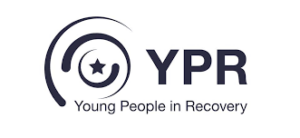Individuals with mental health and substance abuse disorders (MH/SUD) have often faced significant barriers to access effective treatment for their conditions when they need it. PDTs are a new category of FDA-regulated medicine that uses technology to provide around-the-clock treatment to patients, leading to increased adherence and improved outcomes. Using prescription software applications to deliver evidence-based cognitive behavioral therapy (CBT), PDTs allow patients access to treatment for their MH/SUD, at their convenience, on their smartphone or tablet.
The prevalence of MH/SUD continue to increase in the United States. Individuals with these disorders face stigma, discrimination, and significant barriers to diagnosis and treatment.
According to recent statistics:
- One in five Americans ages 18 and above – or about 20.6 percent of adults – experience a mental health (MH) disorder in any given year. This includes schizophrenia, depressive disorder, attention-deficit/hyperactivity disorder (ADHD), anxiety, bipolar disorder, and eating disorders. An estimated 31.7 million women and 20 percent of people ages 55 or older had a mental illness, with one study finding that 13 percent of Medicare beneficiaries ages 65 and older, reported symptoms of depression.
- As reported by the National Center for Drug Abuse Statistics, 29.2 million Americans aged 18 years and over have a substance use disorder (SUD), and approximately 2 million had an opioid use disorder (OUD), including misuse of prescription pain medications, heroin, or fentanyl. This includes nearly one million adults aged 65 and older who live with an SUD and approximately 300,000 Medicare beneficiaries who are diagnosed annually with an OUD.
- According to data from the National Institute of Mental Health, among the 51.5 million adults diagnosed with a MH disorder in 2019, only 23 million (44.8 percent) received any form of treatment. Similarly, the Substance Abuse and Mental Health Services Administration (SAMSHA) reports that less than 20 percent of individuals with an SUD receive treatment.
- Contributing to the treatment gap is a growing shortage of MH/SUD treatment providers and facilities, especially in states with large rural populations and in urban health care deserts. An analysis by the Kaiser Family Foundation found that 119 million Americans live in an area with a MH provider shortage leading to only 26.9 percent of treatment needs being met nationwide. According to the American Society of Addiction Medicine, in 2019, only roughly 4,400 certified addiction specialist physicians were actively practicing in the U.S. – far below the 6,000 that were needed based on an estimate in 2009, long before the peak of the opioid crisis. Less than 20 percent of individuals with an SUD receive treatment.
- The cost of untreated or ineffective treatment of MH/SUD is high. The National Alliance on Mental Illness estimates that untreated mental illness costs up to $300 billion annually due to lost productivity and associated costs due to absenteeism, employee turnover and increases in medical and disability expenses. The National Institute on Drug Abuse notes that substance use costs the U.S. over $600 billion annually; however, several conservative estimates show that every dollar invested into SUD treatment yields a return of between $4 and $7 in reduced drug-related crime, criminal justice costs, and theft. When savings related to health care are included, total savings exceed costs by a ratio of 12 to 1.
These statistics make it clear that there is a need for new options that remove the obstacles to effective MH/SUD treatment.
What Are PDTs?
PDTs are evidence-based medical interventions that use technology available on a tablet or smartphone to provide 24/7 treatment and keep patients and health care providers connected. Used independently, alongside medications, or in coordination with clinician-delivered care, PDTs provide patients with therapy or support when and where they need it, thereby ensuring individuals stay on their treatment plans.
As with traditional medicines, PDTs are prescribed by health care practitioners, backed by safety and efficacy data from clinical trials, and cleared and/or approved by the FDA for specific conditions.
Use of PDTs in Treating MH/SUDs
PDTs aim to prevent, manage, or treat a wide range of diseases and conditions. With regards to MH/SUD, PDTs are currently available or in development for the following conditions:
Below represents the MH/SUD conditions where PDTs are FDA-cleared:
- Attention-deficit hyperactivity disorder (ADHD)
- Chronic Insomnia
- Opioid Use Disorder
- Substance Use Disorder
Additionally, there are therapeutics in development for the following MH/SUD conditions:
- Alcohol use disorder
- Anxiety disorders
- Depression
- Post-traumatic stress disorder (PTSD)
- Schizophrenia
The most common application for PDTs is to deliver CBT, a form of psychological treatment that involves efforts to change thinking and behavioral patterns. Research indicates that the skills individuals learn through CBT remain long after the completion of treatment.
With respect to SUDs, PDTs can be used in combination with other types of treatment provided by a health care professional, such as face-to-face counseling, and prescription medicines. PDTs give providers access to secure, asynchronous, or real-time data from patients, so clinicians can monitor progress and manage the personalized treatment plans.
Addressing the Barriers to Use of PDTs in Treating MH and SUDs
Currently, Medicare does not provide coverage for PDTs. Medicaid and private payers generally follow Medicare’s coverage determination. Thus, there is an urgent need to create a new Medicare benefit category specifically for PDTs that could also pave the way for Medicaid and private payers to offer similar coverage. Additionally, given that emerging nature of the technology, there is a need for patients and providers to be educated on the benefits and availability of PDTs for individuals with MH/SUD.










